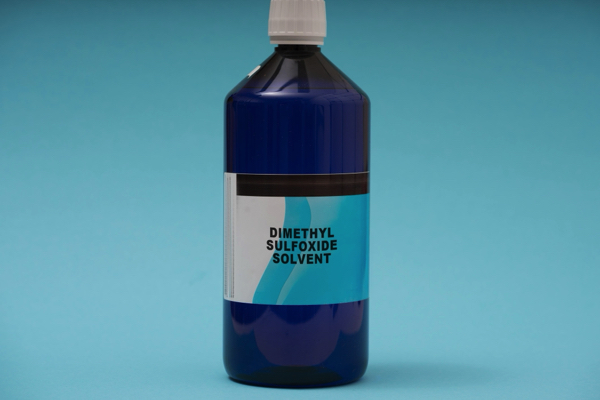The mouth-brain connection: Could dental health guard against dementia (and vice versa)?
05/15/2025 / By Willow Tohi

- Harmful oral bacteria (e.g., Porphyromonas gingivalis) from gum disease can enter the bloodstream, causing brain inflammation and contributing to Alzheimer’s and cognitive decline. The oral microbiome influences brain health, with beneficial bacteria (e.g., Neisseria) supporting nitric oxide production, while harmful species disrupt brain function.
- Studies link gum disease to hippocampal atrophy and white matter damage, increasing dementia risk. A 2025 study found that Neisseria correlated with better cognitive function, while Prevotella intermedia was tied to genetic Alzheimer’s risk in APOE4 carriers.
- Leafy greens, beets and polyphenol-rich foods (e.g., berries) support beneficial bacteria and nitric oxide production. Brushing, flossing and regular dental cleanings reduce harmful bacteria and inflammation.
- Cost and lack of Medicare dental coverage prevent many older adults from accessing care, worsening disparities. Neurodegenerative patients (e.g., Alzheimer’s) require specialized dental strategies, such as adaptive tools.
- Researchers urge collaboration between medical and dental fields to prioritize prevention. Public health policies should address affordability and education, emphasizing oral care as critical for long-term brain health.
A growing body of research suggests that the health of our mouths may hold clues—and keys—to preserving cognitive function as we age. Recent studies reveal that harmful oral bacteria from gum disease can migrate to the brain, triggering inflammation and contributing to conditions like Alzheimer’s. From the University of Exeter to Tohoku University, scientists are uncovering the intricate ties between periodontal health and brain health, challenging the notion that our biology alone determines brain aging. “Maintaining good oral hygiene and a balanced oral microbiome may protect against cognitive decline more than we ever realized,” says Joanna L’Heureux, a researcher at the University of Exeter Medical School. This finding, elucidated through breakthrough studies on oral bacteria and diet, underscores the importance of dental habits and nutrition in shaping our neurological future.
The link between oral bacteria and cognitive health
The oral microbiome — a complex ecosystem of bacteria, viruses and fungi — plays a dual role in brain health. While beneficial species like Neisseria support critical processes such as nitric oxide (NO) production, others, like Porphyromonas gingivalis and Prevotella intermedia, contribute to damage. “Harmful bacteria can enter the bloodstream through inflamed gums, leading to systemic inflammation that disrupts the blood-brain barrier,” explains L’Heureux. This breach allows proteins implicated in Alzheimer’s, like amyloid-beta, to accumulate, while also promoting oxidative stress and neurodegeneration.
Nitric oxide, essential for memory and blood flow, is further compromised as harmful bacteria imbalance the nitrate-nitrite-NO pathway. Leafy greens and beets, rich in dietary nitrate, help replenish this pathway by fostering beneficial microbes. Without them, older adults risk cognitive decline due to natural declines in NO synthesis. A 2025 study led by L’Heureux found that Neisseria, a nitrate-processing bacteria, correlated with better executive function and visual attention in individuals with mild cognitive impairment, while Prevotella intermedia marked genetic risk for dementia in APOE4 carriers — a common Alzheimer’s susceptibility variant.
New research sheds light on risks and preventions
Forward-looking studies are quantifying the threat. In Japan, researchers discovered a direct association between gum disease and hippocampal atrophy. “Having fewer teeth was linked to faster left hippocampal shrinkage in those with mild periodontitis,” says Satoshi Yamaguchi, a dentist at Tohoku University, whose team studied over 600 elderly adults. Meanwhile, a Yale analysis of 40,000 participants revealed genetic predisposition to oral issues correlated with brain white matter damage — a precursor to stroke and cognitive decline. “Poor oral health may allow bacterial toxins to infiltrate the brain,” explains co-author Cyprien Rivier, suggesting inflammation and toxic proteins as pathways.
The implications are global. A 2023 NYU study found that tooth loss combined with diabetes accelerated cognitive decline, emphasizing systemic health connections. However, hope lies in early intervention: addressing gum disease and adopting diet and hygiene changes could delay or mitigate risks. “We’re looking to translate these findings into actionable advice,” says Bei Wu, a NYU aging expert, highlighting the need for interdisciplinary approaches.
Practical steps and overcoming barriers
Armed with this knowledge, actionable strategies emerge. Basic hygiene — brushing, flossing, biannual dental visits — remains foundational. “Diet also matters,” says Angel Planells, a registered dietitian, noting that fiber-rich fruits, cruciferous vegetables and polyphenol sources like berries suppress harmful bacteria. Avoiding sugar, staying hydrated and using alcohol-free mouthwashes prevent microbial imbalance.
Yet disparities persist. According to Wu’s 2019 study, older adults may skip dental care due to cost or accessibility, with marginalized groups disproportionately affected. Medicare’s lack of coverage for most dental procedures compounds the issue. Cameron Jeter, a Kansas neuroscientist, adds: “People must understand that oral care isn’t just cosmetic—it’s vital to longevity.”
For neurodegenerative patients, challenges intensify. Alzheimer’s caregivers may need strategies like adaptive toothbrushes, while dentists specializing in disability care can ease anxiety. “Even with dementia, the mouth matters,” insists neurologist Seth Keller.
A call for holistic health in an aging world
The mouth’s role in brain health heralds a paradigm shift. As life expectancy climbs, dementia’s rise demands proactive measures—starting with dental visits and dietary choices. “This isn’t just about fixing teeth or symptoms,” concludes Wu. “It’s about recognizing interconnected biology and prioritizing prevention.” Researchers urge policymakers, dentists and medical professionals to unite, ensuring affordable care and fostering communities where every bite promotes health—from the gums to the neurons.
With half a million Americans newly diagnosed with Alzheimer’s each year, the science is clear: nurturing our microbiome may quite literally help us stay sharp. As L’Heureux puts it, the time to act is now—before cognitive decline takes root.
Sources for this article include:
Submit a correction >>
Tagged Under:
alternative medicine, Alzheimer's disease, brain damaged, brain function, brain health, dementia, dentistry, disease causes, longevity, mental, Mind, mind body science, natural health, natural medicine, oral health, prevention, research
This article may contain statements that reflect the opinion of the author
RECENT NEWS & ARTICLES
COPYRIGHT © 2017 NATUROPATHY NEWS



















